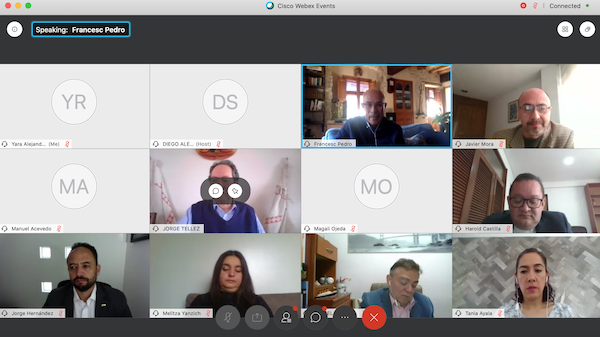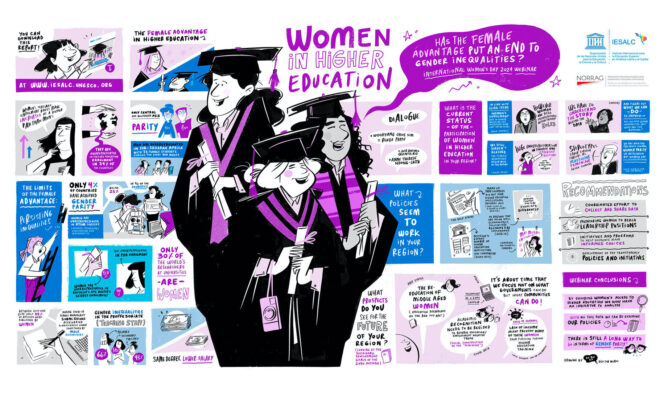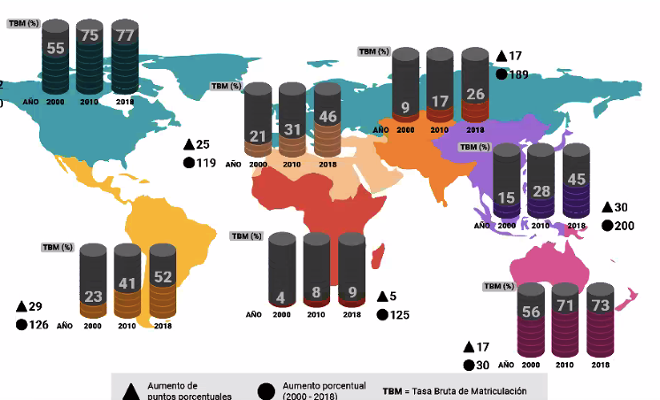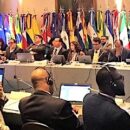Experts agree on the need to achieve region-specific indicators to promote mobility in higher education
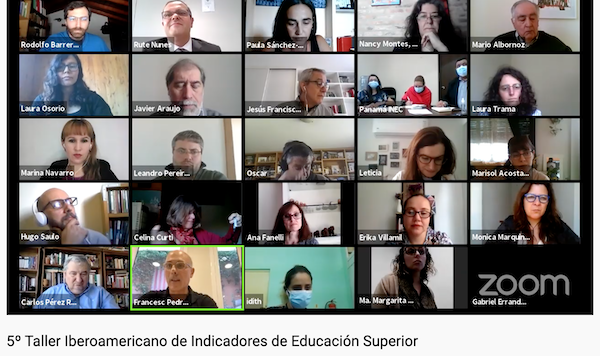
 On Wednesday, September 16, 2020, Luis Scasso, Director of the Office of the Organization of Ibero-American States for Education, Science and Culture (OEI) in Argentina, opened the first session of the V Ibero-American Workshop on Higher Education Indicators, organized by the Red Iberoamericana de Indicadores de Educación Superior (INDICES) (Ibero-American Network of Higher Education Indicators).
On Wednesday, September 16, 2020, Luis Scasso, Director of the Office of the Organization of Ibero-American States for Education, Science and Culture (OEI) in Argentina, opened the first session of the V Ibero-American Workshop on Higher Education Indicators, organized by the Red Iberoamericana de Indicadores de Educación Superior (INDICES) (Ibero-American Network of Higher Education Indicators).
Mario Albornoz, Coordinator of the Observatorio Iberoamericano de la Ciencia, la Tecnología y la Sociedad (OCTS-OEI) (Ibero-American Observatory of Science, Technology and Society), welcomed the celebration of the workshop that has been carried out for five consecutive years and raised the need to define “what kind of science and higher education (HE) we want for our countries”, to be able to base the search for information and consequently compare the higher education (HE) systems in Latin America. “In order to be successful, policies must be based on data and that is why the effort we make to process and disseminate it, is important,” he informed.
Lidia Brito, director of Oficina Regional de Ciencia y Tecnología para América Latina y el Caribe de la UNESCO (UNESCO’s Regional Office for Science and Technology for Latin America and the Caribbean) in Montevideo, Uruguay, emphasized the need to “understand the structural changes that are taking place” and invited participants to read the IESALC Report that shows how universities responded to this COVID-19 crisis.
Jaime Perczyck, Secretario de Políticas Universitarias del Ministerio de Educación de la Nación (Secretary of University Policies of the Ministry of Education of Argentina), affirmed that the possibilities of integration in Latin America will be built through its differences, its diversity, and to achieve this it is necessary “to build indicators that are specific to our region”.
Nancy Montes, coordinator of the INDICES Network, emphasized on the composition of the Network and introduced the participants of the expert panel.
The coordinator of Higher Education, ETP (Technical Professional Training) and Science of the Organization of Ibero-American States (OEI), Ana Capilla, presented the origin of the project they are developing. Capilla explained that in 2019 the need for comparable data to build indicators on systems as a whole, in this case in Ibero-America, was raised. She also commented that the work to set the strategic lines for 2020, based on the Agenda 2030 of the United Nations, was carried out.
Paula Sánchez Carretero, specialist in higher education of the OEI, and Carlos Malaca of the Education Statistics Service of the Ministry of Education of the Portuguese Republic “presented a proposal to specify, improve and deepen the collection of data on the processes of internationalization and mobility, as well as to explore the criteria used by the countries of the region to define what is understood by foreign students, international students, and exchange programs,” as is expressed on the OEI website.
The director of the UNESCO International Institute for Higher Education in Latin America and the Caribbean (IESALC), Francesc Pedró, moderated the panel of experts and in his speech he stressed the need for higher education indicators belonging to the Ibero-American space. He considered “that the comment made about not replicating or contradicting existing databases, but to rather add to it and have a good coordination, was relevant”.
Pedró’s comment on the intrinsic and conceptual difficulties in relation to the virtual academic modality, caused diverse reactions in the participants who took part of the question and answer space: “I have doubts about the concept of virtual mobility that is used, in my opinion it should refer to the mobility program as a whole and not just to one subject”. “A subject should not be counted as virtual mobility since in that context the student does not become part of an academic community,” he said.
Subsequent comments highlighted the importance of defining the concept of virtual academic mobility for the generation of internationalization indicators in Ibero-America and the need to join efforts to achieve region-specific indicators.
Watch the webinar:
RELATED ITEMS
